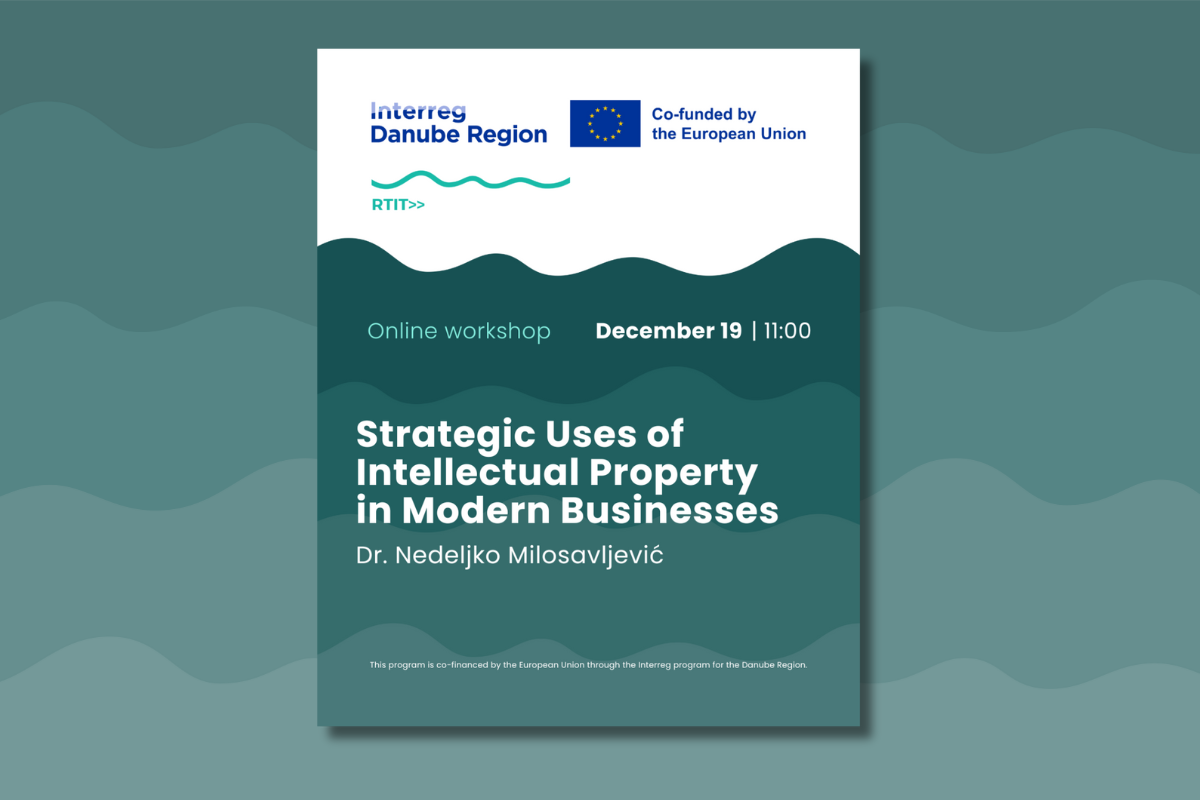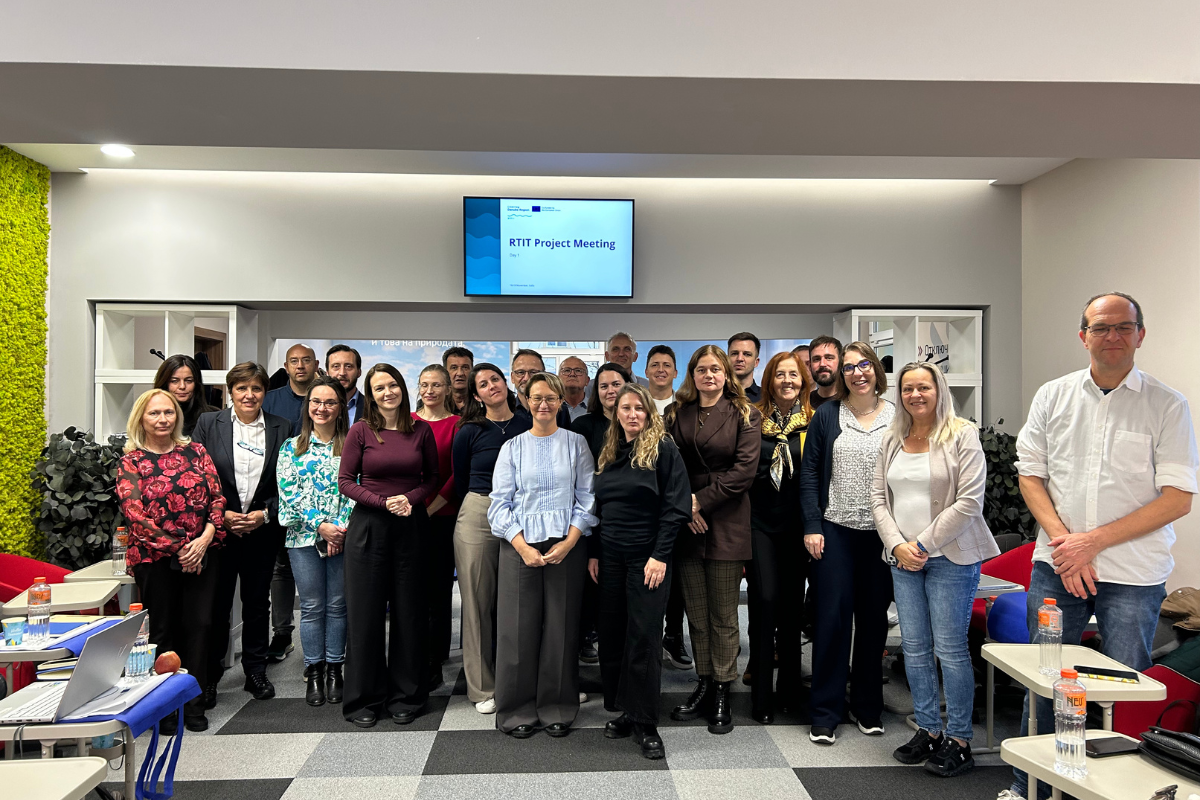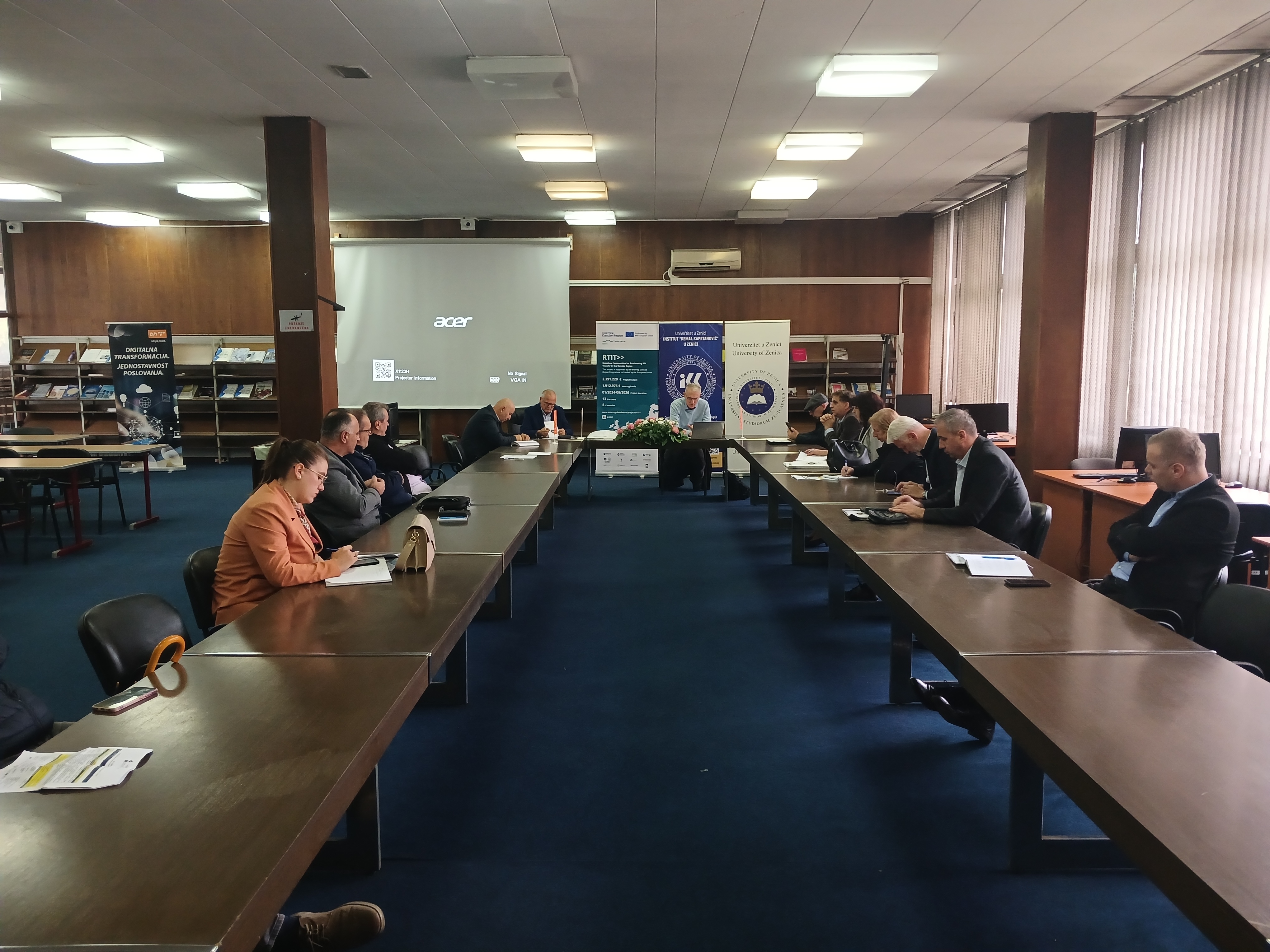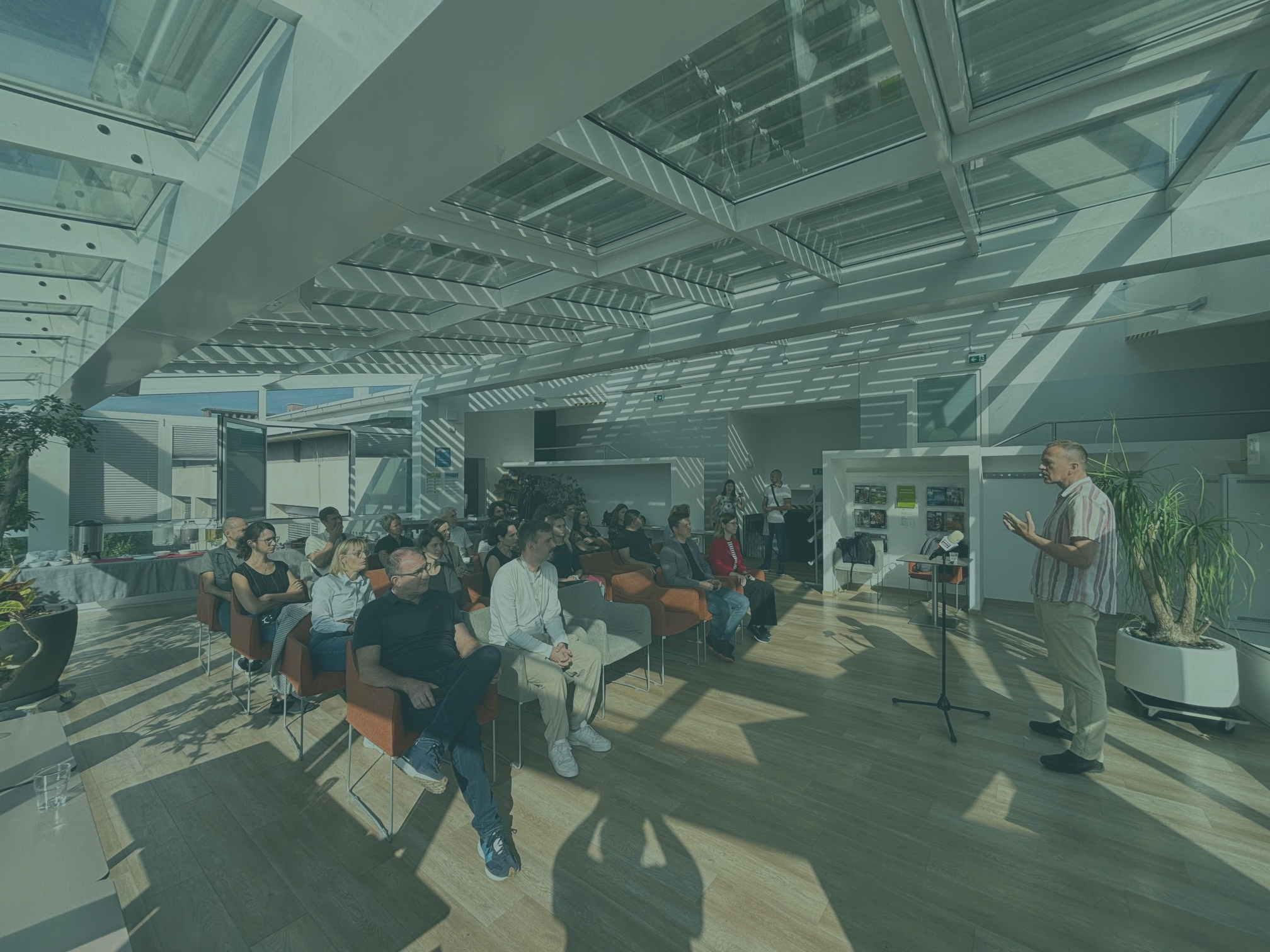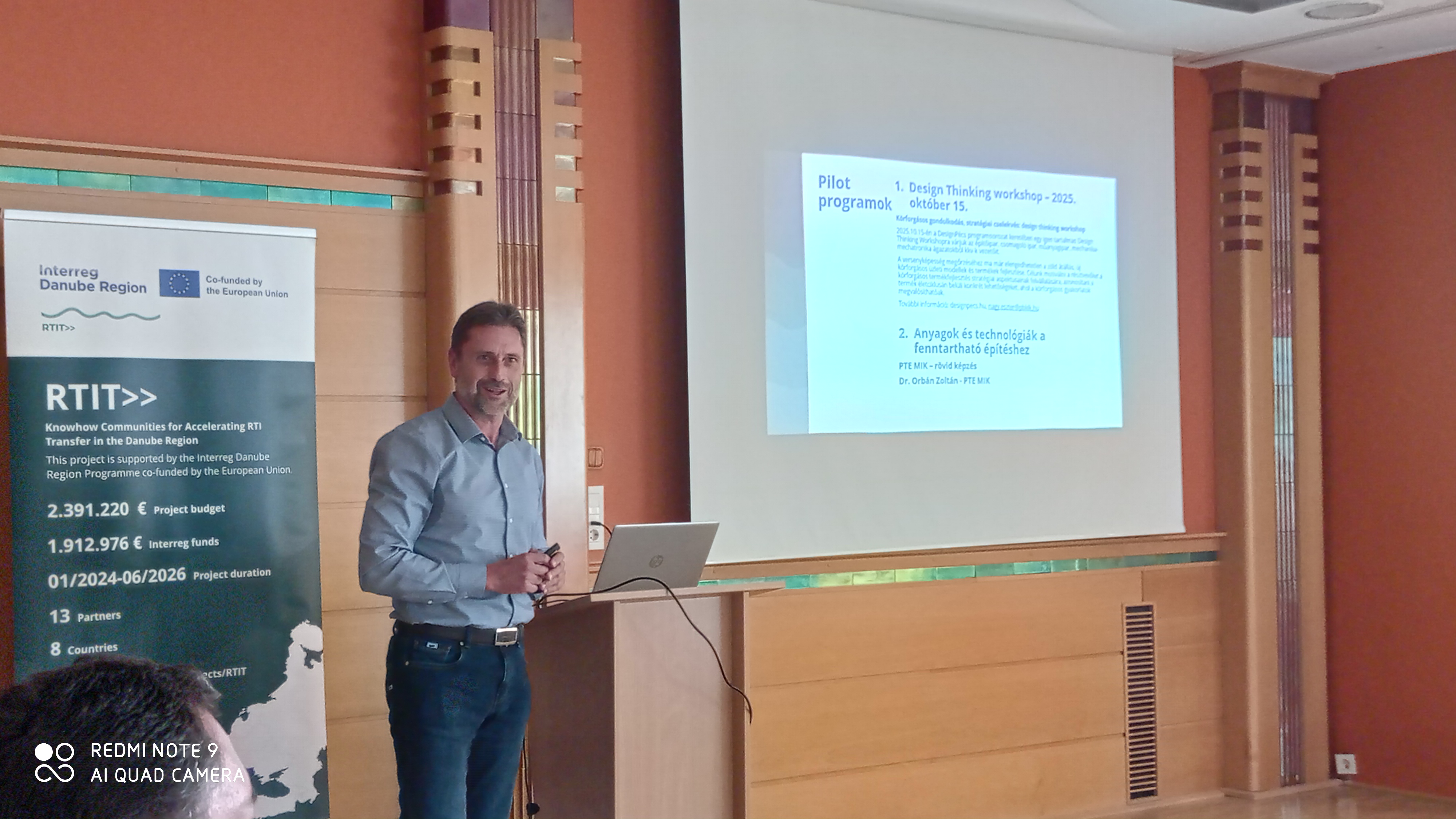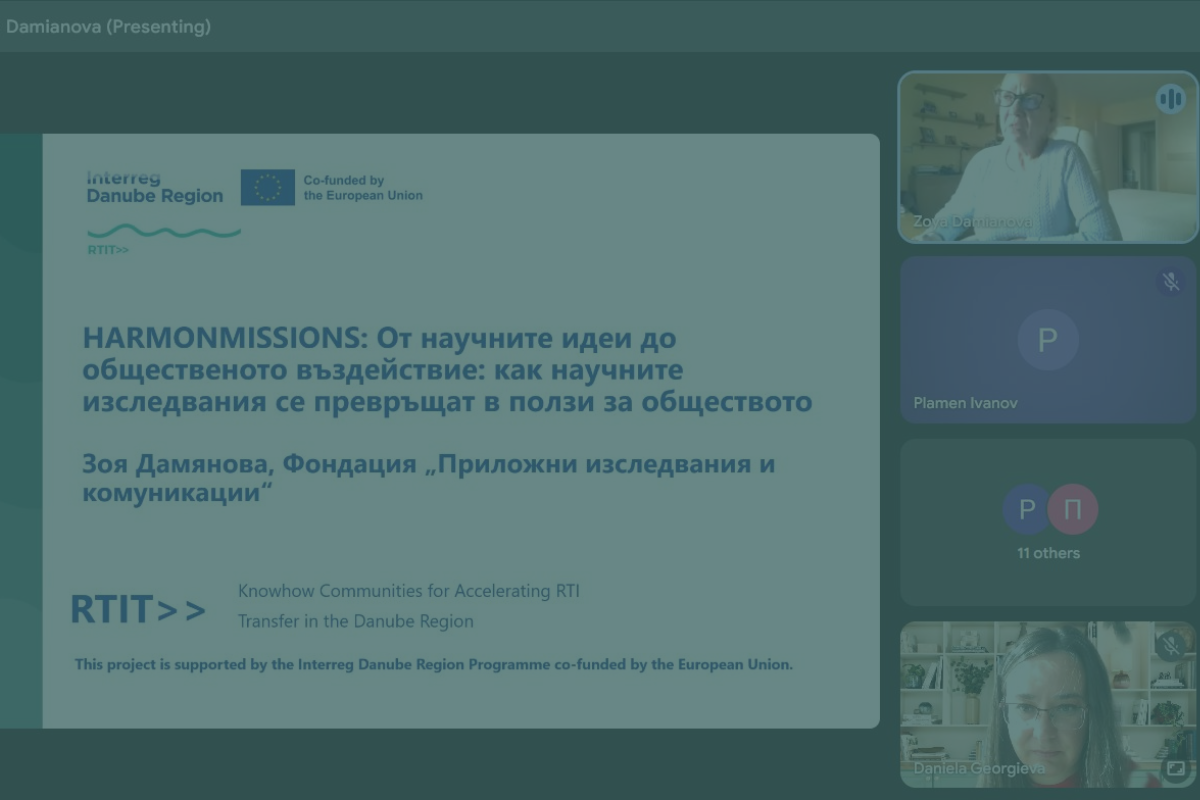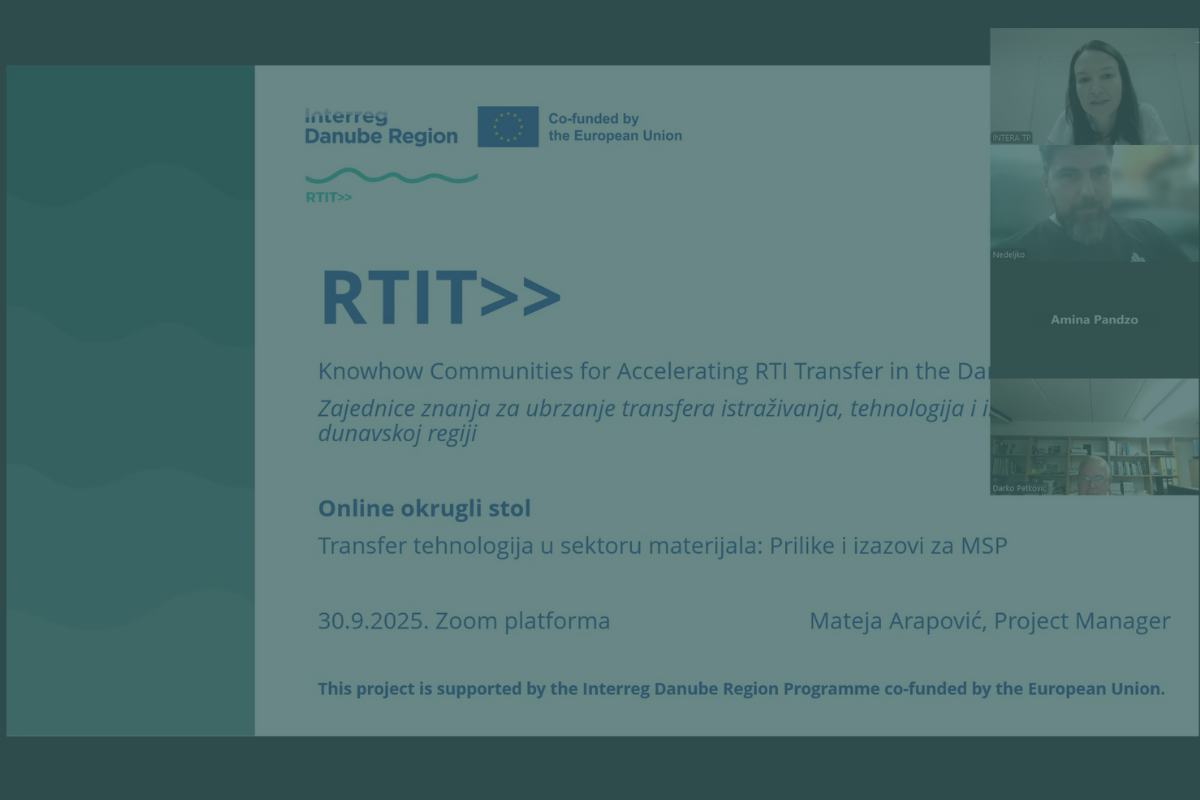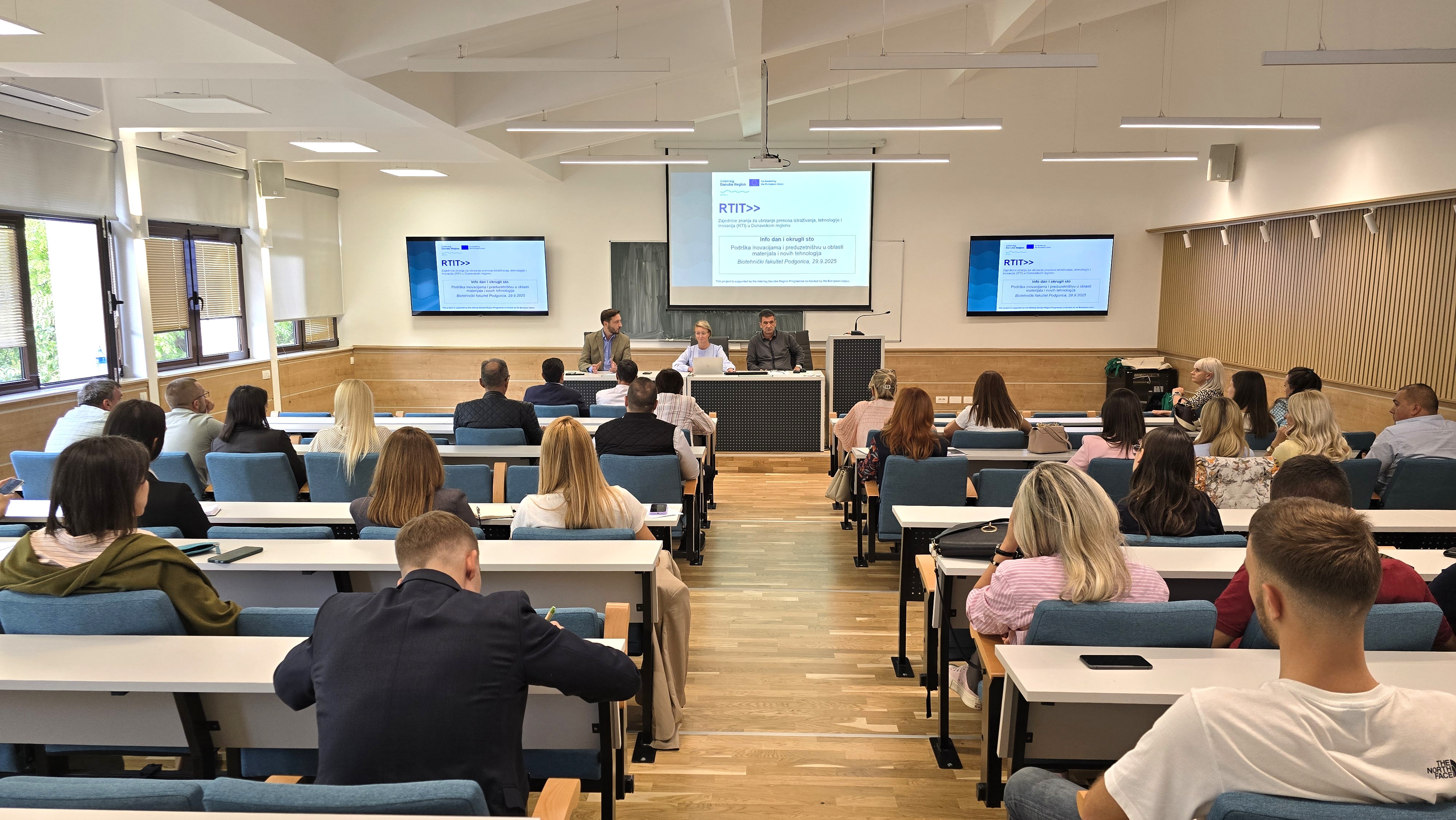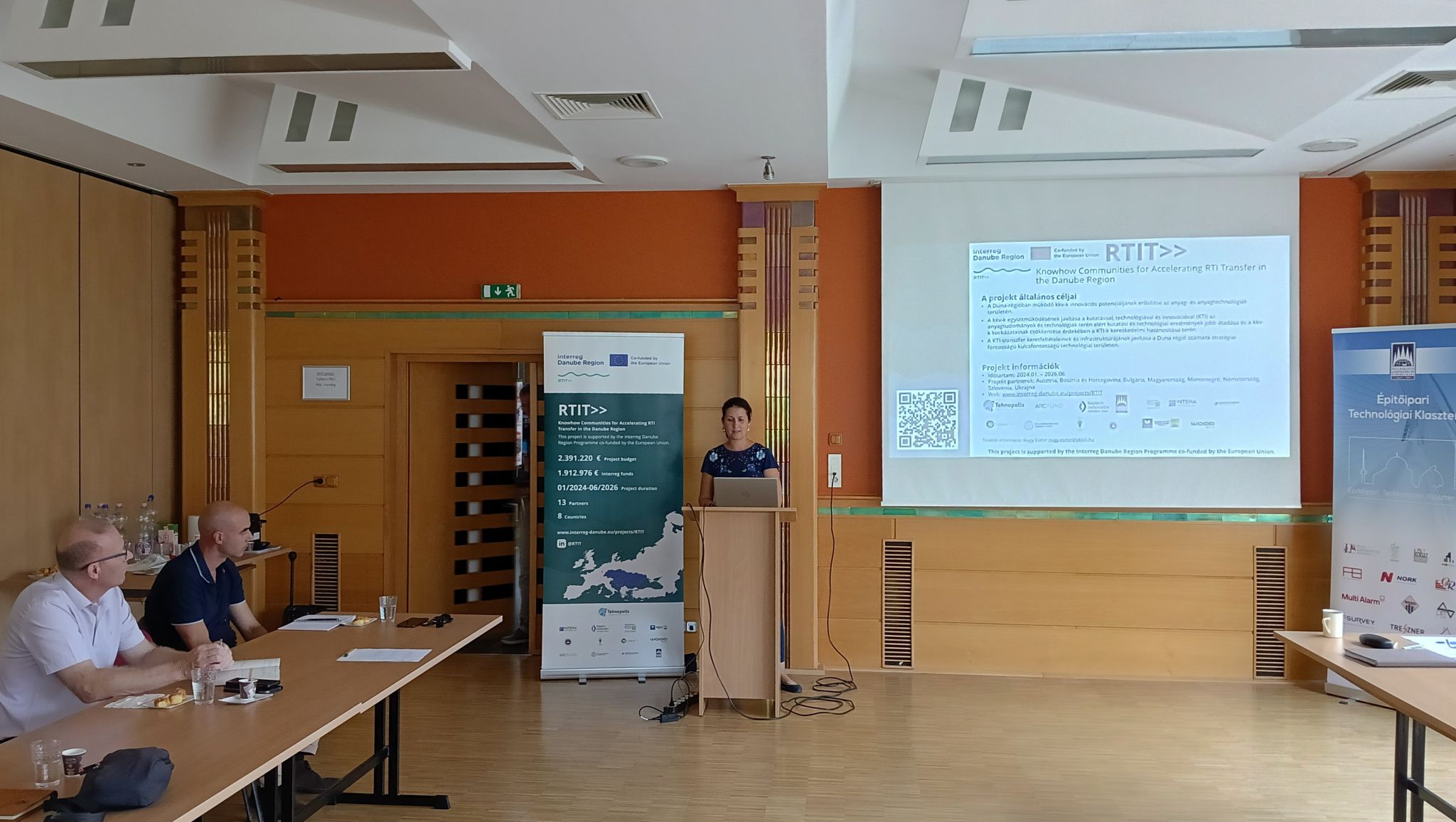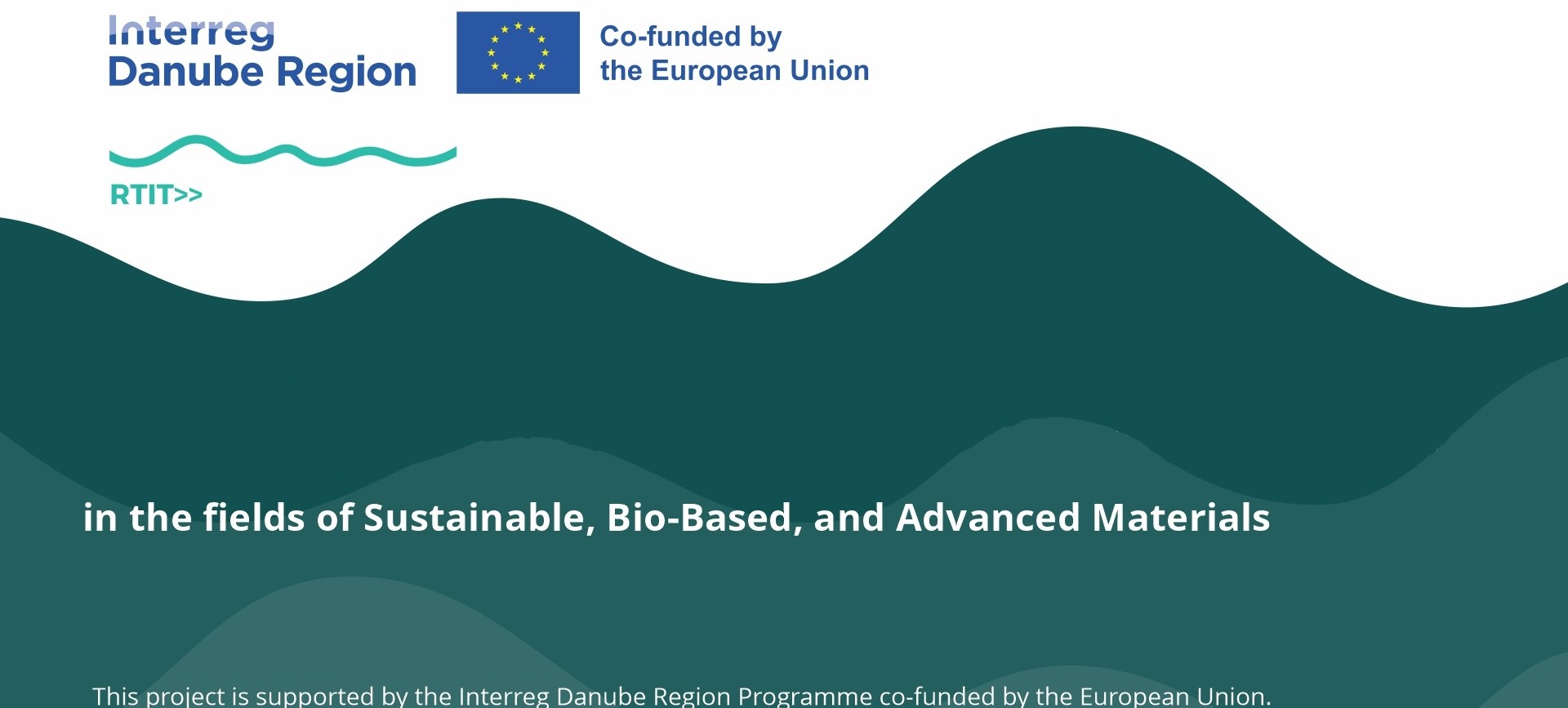RTIT>>
Knowhow Communities for Accelerating RTI Transfer in the Danube Region
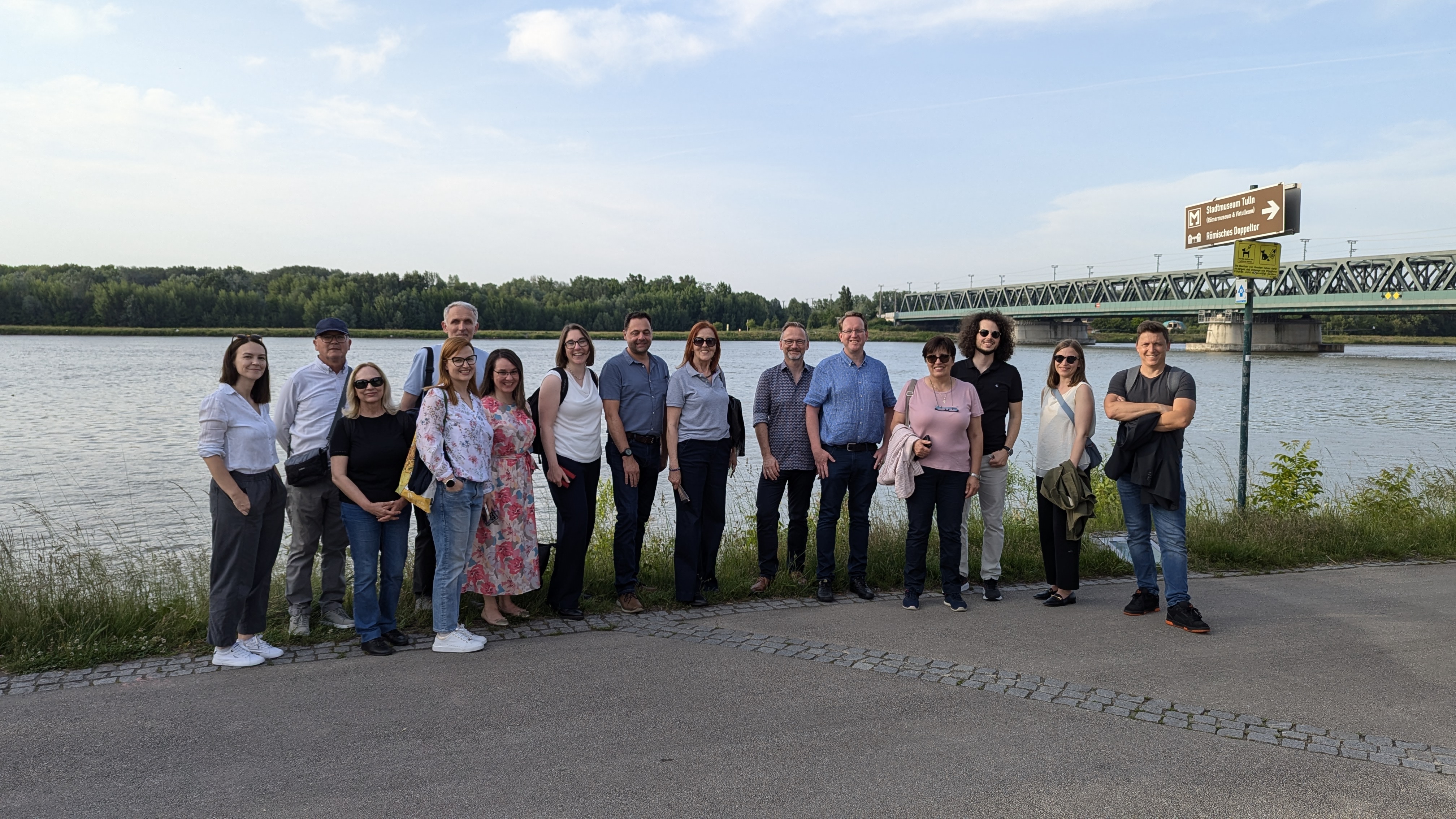
Materials as a cross-sectional technology are of central importance in the digital and green transition. Materials and material technologies are a key asset in times of geopolitical instability and represent a highly dynamic sectors with tremendous technological challenges and high innovation potential, such as sustainable, smart and responsive materials, advanced composites, surface engineering, lightweighting or energetically optimised materials. The Danube Region (DR) is strong in the production and manufacturing of materials and a key region within the EU to reduce the dependency on markets outside the European continent. The DR countries S3 strategies reflect that ambition clearly. However, the technological challenges, the growing need for sustainability and resilience demand a much higher level of Research, Technology and Innovation (RTI) but foremost a more effective RTI transfer to the business community in order to not only remain competitive but improve the DR position as key player in European value chains. Yet innovation support system as well as RTI management and valorisation policy struggle with finding the right strategies and measures to narrow the gap to European innovation leaders and master the upcoming challenges.
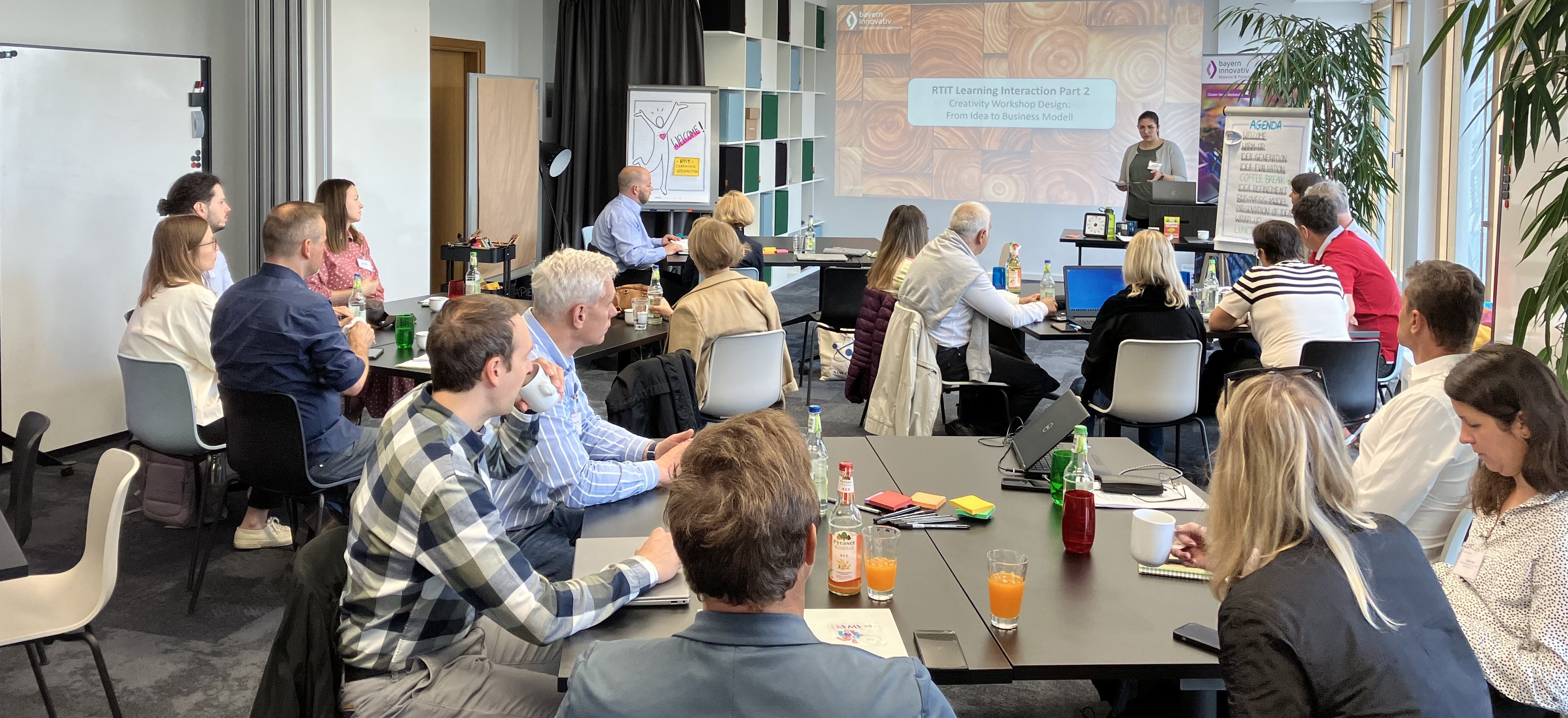
RTI institutions do not cooperate (enough) with business support organisations. The lack of sustainable long-term relationships and cooperation with actors from well-functioning RTI support systems prevents access to prospective RTI projects. Administrative fragmentation, lack of human resources and funding in RTI transfer system make the catching-up with EU innovation levels even harder. The transnational cooperation with the innovation leaders helps finding the right strategy and approaches to fasten the catching-up process in RTI transfer and narrow the gap between "East" and "West". Through experience and knowhow sharing from highly innovative regions to moderate and emerging innovator countries, the less developed regions are supported in the introducing new approaches.
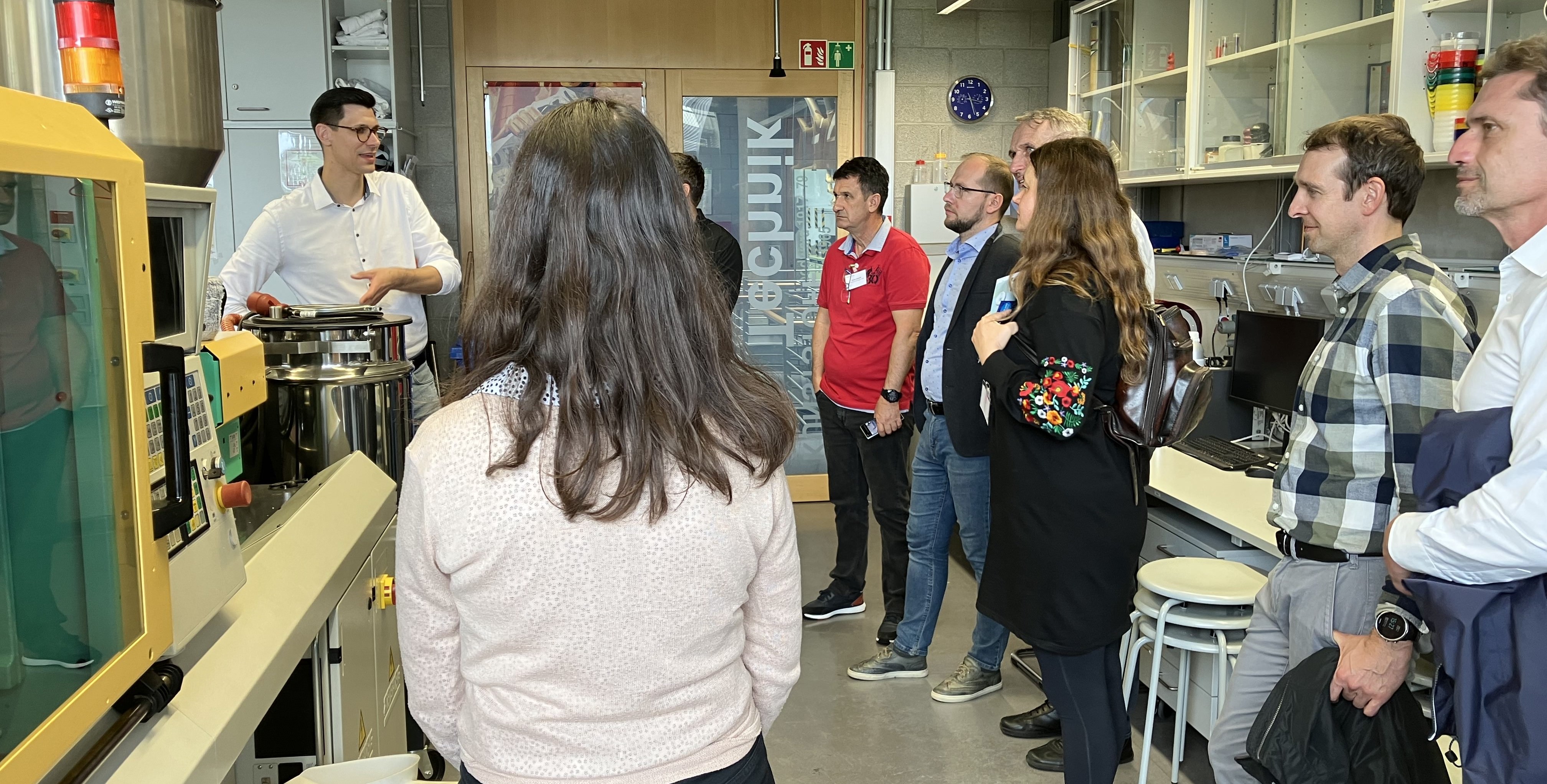
The RTIT>> consortium will develop and uptake the transnational Action Plan to accelerate RTI transfer in the field of materials and material technologies in the DR that is based on the New Industrial Strategy for Europe (2020), detailing policy measures and actions for decision-makers in academia and business support infrastructure, focusing on capitalising the region’s strengths and advantages, and delivering new knowhow to the region on RTI transfer, Design management & knowhow communities. All 11 territorial demonstration partners (MN, SI, BH, BG, HU, UA) will take up the three sets of tools developed, field-tested and validated, through an innovative holistic approach focusing on the three components of RTI transfer: the transfer itself, design management and knowhow communities. It is RTIT>> objective to strengthen the innovation potential of SMEs in the field of material/material technologies by improving the collaboration of SMEs with RTI partners and creating respective networks. We will build up knowhow communities, introduce new RTI to market as well as market pull of RTI mechanisms and support SMEs in commercialising RTI through design management. By creating better framework conditions and structure for RTI transfer in a key technology area such as materials/material technologies, RTIT>> contributes to resource-efficiency, sustainability and digitalisation, and strengthens the resilience of SMEs in European value chains.
News & Events
Read the most recent updates and explore the upcoming events.
Project overview
Need any help? Contact us!

Anđela Nikčević
Project Manager
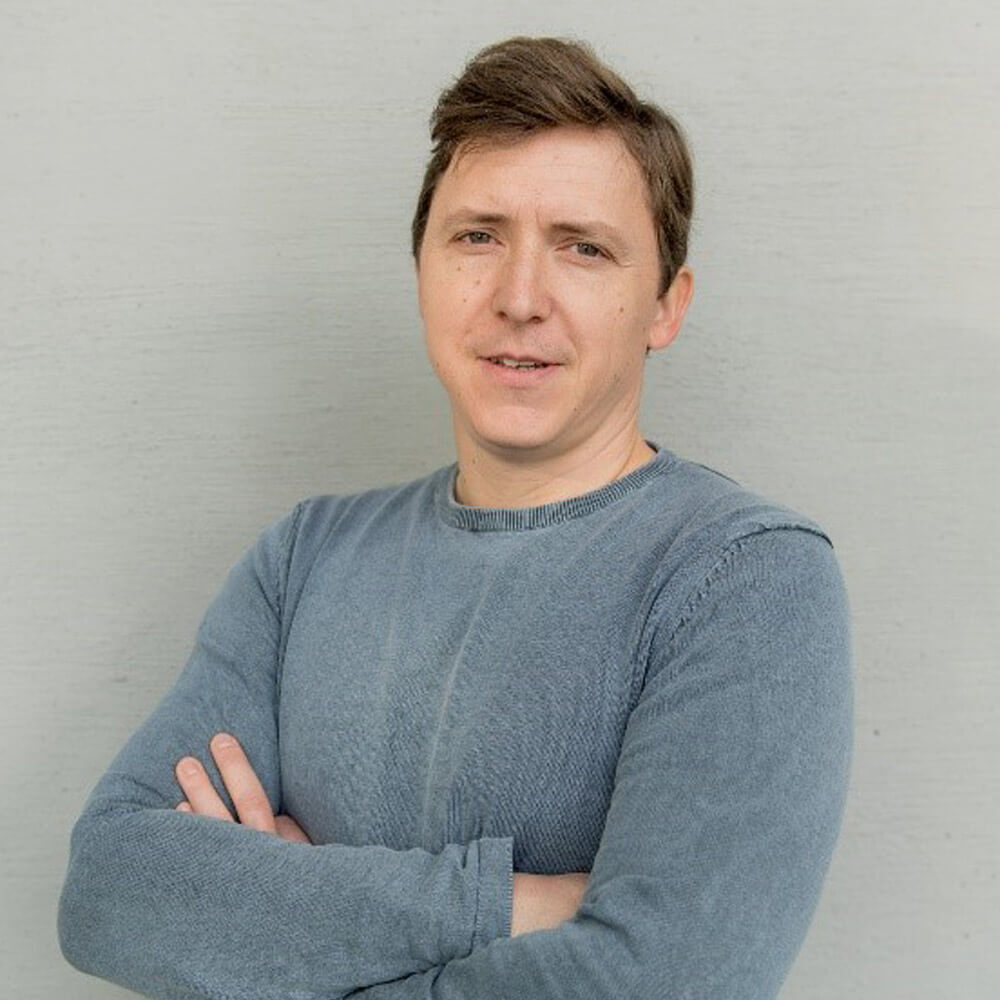
Žiga Lampe
Project Manager

Barbara Giehmann
Project Manager

